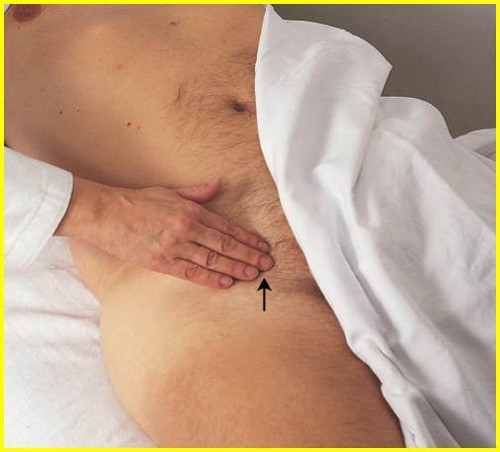A nurse is teaching a client who has atrial fibrillation and is to start taking dabigatran.
Which of the following statements by the client indicates an understanding of the teaching?
“I can store the medication in the refrigerator.”.
“I should keep the medication in the original container.”.
“I can crush the medication and mix with applesauce.”.
“I should replace any unused medication every 6 months.”.
undefined
The Correct Answer is B
The correct answer is choice B. The client should keep the medication in the original container.
Dabigatran is a blood thinner that is used to prevent strokes or blood clots in people with atrial fibrillation, a type of irregular heartbeat. Dabigatran is sensitive to moisture and can lose its potency if exposed to humidity or heat. Therefore, it is important to store it in the original bottle or blister package that has a desiccant (drying agent) in the cap or cover. The client should also close the cap tightly after each use and keep the bottle away from excessive moisture, heat, and cold.
Choice A is wrong because storing the medication in the refrigerator can expose it to moisture and cause it to break down. Choice C is wrong because crushing the medication and mixing it with applesauce can alter its absorption and effectiveness. Choice D is wrong because the medication can be used up to 60 days after opening the bottle as long as it is stored properly. The normal dose of dabigatran for stroke prevention in atrial fibrillation is 150 mg twice a day, unless the client has kidney problems or other factors that require a lower dose.
Nursing Test Bank
Naxlex Comprehensive Predictor Exams
Related Questions
Correct Answer is A
Explanation
The correct answer is choice A: “We can review some information to help you select a safe alternative practitioner.” This statement shows respect for the client’s interest in alternative therapies and offers guidance on how to choose a reliable and qualified provider. Alternative therapies can provide some benefits for people with rheumatoid arthritis, such as reducing pain, inflammation, and stiffness, but they should be used as a complement to conventional treatments and not as a substitute.
Choice B is wrong because it implies that the client has no role in deciding their own treatment plan and that alternative therapies are not worth considering.
This may discourage the client from sharing their preferences and concerns with the provider.
Choice C is wrong because it suggests that online support groups are a reliable source of information about alternative remedies, which may not be true.
Online sources may contain inaccurate, misleading, or harmful information that could jeopardize the client’s health and safety.
Choice D is wrong because it encourages the client to try any therapy that fits their personal belief system, without considering the evidence, effectiveness, or potential risks of such therapies. Some alternative therapies may interact with medications, cause side effects, or worsen the condition.
Normal ranges for rheumatoid arthritis are not applicable in this question, as it is not asking about laboratory values or disease activity measures. However, some common tests used to diagnose and monitor rheumatoid arthritis include erythrocyte sedimentation rate (ESR), Creactive protein (CRP), rheumatoid factor (RF), anti-cyclic citrullinated peptide (anti-CCP) antibodies, and joint ultrasound or X-ray.
The normal ranges for these tests may vary depending on the laboratory and the method used.
Correct Answer is C
Explanation

This is because coarctation of the aorta is a congenital condition where the aorta is narrow, usually in the area where the ductus arteriosus inserts. This causes a decrease in blood flow to the lower body, resulting in weak or absent pulses in the femoral arteries.
The other choices are incorrect for the following reasons:
- Choice A, frequent nosebleeds, is not a typical sign of coarctation of the aorta.
Nosebleeds can be caused by many factors, such as dry air, allergies, trauma, or bleeding disorders.
- Choice B, upper extremity hypotension, is also not a common finding in coarctation of the aorta. In fact, patients with this condition may have high blood pressure in the upper extremities due to the increased resistance of the narrowed aorta.
- Choice D, increased intracranial pressure, is not directly related to coarctation of the aorta.
Increased intracranial pressure can be caused by various conditions that affect the brain, such as head injury, stroke, infection, or tumor.
Normal ranges for blood pressure and pulse vary depending on age, sex, and health status.
However, some general guidelines are:
- Blood pressure: less than 120/80 mmHg for adults; less than 95/65 mmHg for infants.
- Pulse: 60 to 100 beats per minute for adults; 100 to 160 beats per minute for infants.
Whether you are a student looking to ace your exams or a practicing nurse seeking to enhance your expertise , our nursing education contents will empower you with the confidence and competence to make a difference in the lives of patients and become a respected leader in the healthcare field.
Visit Naxlex, invest in your future and unlock endless possibilities with our unparalleled nursing education contents today
Report Wrong Answer on the Current Question
Do you disagree with the answer? If yes, what is your expected answer? Explain.
Kindly be descriptive with the issue you are facing.
